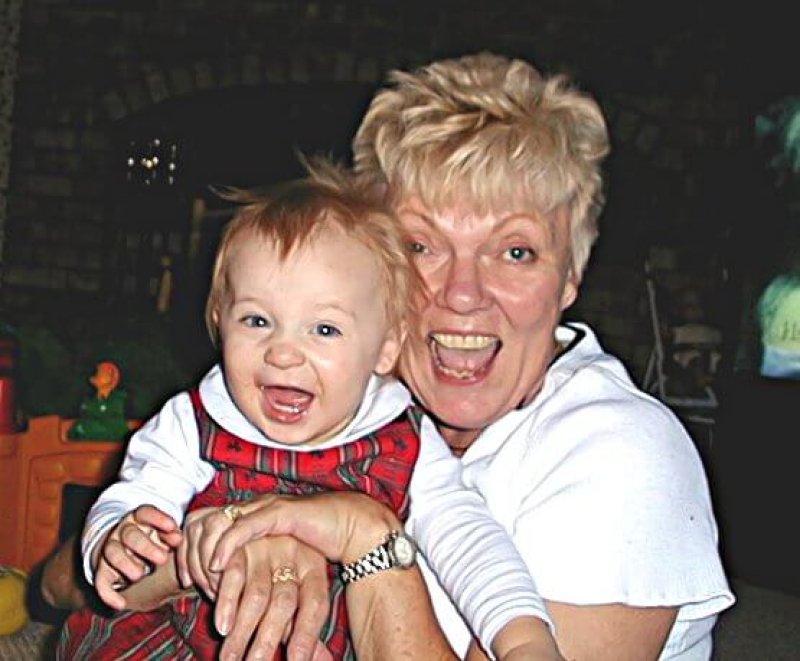When moms work, more American preschool age children are watched by a grandparent than go to daycare according to a 2011 census report.
A trend that started when American women flooded back into the workforce since the 1960s. Many evolutionary anthropologists believe Grandma was on kid duty long before office jobs even existed.
According to the Grandma Hypothesis, humans rely on assistance from elders to help raise offspring that are relatively helpless compared to the rest of the animal kingdom. Even after we’re weened, for example, we still can’t feed ourselves for years to come. The Grandma Hypothesis is also put forward as a proposed reason for human menopause. Most mammals die about the time they lose their ability to reproduce. Humans, killer whales and pilot whales are the only exceptions.
But how we live long enough and healthfully enough to become productive grandparents in the first place is an open question. A new study, however, points to the development of two gene variants in genes linked to dementia. These new variants are protective against the amyloid beta plaques known to cause Alzheimer’s disease. And because these don’t show up in chimpanzees, our closest evolutionary relatives, we know the genes’ protective variants evolved to be uniquely human. Kelli Whitlock Burton at Science explains:
To learn more about the gene’s lineage, the team compared how prevalent the two versions were in human tissue and in chimpanzees, which — along with bonobos — are our closest living animal relatives. Both humans and chimps had similar levels of the damaging version of CD33, meaning it must be the more ancient of the two variants. However, when the researchers looked at the protective variant, its levels were four times higher in humans than in chimps.
The first gene provides the genetic instructions to make a protein, CD33, that sits on the outside of cells and helps clear away and control inflammation in the body. The new variant of the gene seems to be protective against developing the condition. About 20 percent of humans carry the favorable gene variant. It’s important to note this relates to late-onset Alzheimer’s disease, not the more rare early-onset disease that tragically runs through entire families.
The University of California San Diego researchers discovered human-specific protective variants in another gene, the already well-known APOE gene. Two variants the gene are protective against developing Alzheimer’s disease, while the default increases the risk of developing it. Although these genes can’t explain human longevity and menopause by themselves, they are evidence that it was advantageous that these elder community members retain their cognitive function. And the researchers argue they are possibly part of the biological changes that led to the development of human culture and communal living. It’s also an unusual example of genes that affect people post-reproduction when only their children’s children could directly benefit, not their own.
One question the study raises is a matter of time frames. Americans didn’t start having a life expectancy past 60 until 1920 according to CDC data (p.28). So why would genes that protect a disease that rarely shows symptoms until then matter? When you factor out infant mortality, Benjamin Redford argues at Live Science, the human lifespan — how long we could live once we got through the dodgy infant bits — might be much longer:
The high infant mortality rate skews the “life expectancy” dramatically downward. If a couple has two children and one of them dies in childbirth while the other lives to be 90, stating that on average the couple’s children lived to be 45 is statistically accurate but meaningless.
But, pathologists find evidence of late-onset Alzheimer’s disease in the brain as early as 40 years old. That would suggest that there maybe early cognitive changes that might have an impact before significant symptoms can be diagnosed. Another possibility is that the gene variants these scientists discovered have an unknown protective affect earlier in life as well. In that way they could be evolutionarily favored irrespective of the savvy-grandma effect.
This study is most powerful because it documents a generation-skipping effect of evolution. These gene variants helped propagate the species not because it helped its carriers have more babies, but because their babies could have more babies. Grandma was around to make sure no one drowned, was bitten by a snake, ate something poisonous or got left behind. And, as the current census data show, she still is.
Meredith Knight is a contributor to the human genetics section for Genetic Literacy Project and a freelance science and health writer in Austin, Texas. Follow her @meremereknight.































